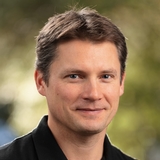Robert Abbel

Contact
- Phone: +64 7 343 5851
- Email: Robert Abbel
- ORCID: 0000-0002-2273-2216
- Team: Chemistry and Physics & Polymer Chemistry
- Role: Senior Scientist and Team Lead
About
Robert studied chemistry at the Universities of Mainz (Germany) and Toronto (Canada), before moving to the Netherlands for his PhD in supramolecular chemistry at Eindhoven University of Technology. In 2009, he joined Dutch research institute Holst Centre / TNO where he worked on printed and organic electronic materials and devices. Since his move to Scion in 2018, his main research focus is on chemicals and materials derived from renewable resources. Robert is particularly interested in their synthesis, processing and application in functional devices with low environmental footprint. Since 2021, he is also active in the area of microplastics pollution and strategies for its remediation.
Qualifications
- Diplom-Chemiker (2004; Johannes Gutenberg University, Mainz, Germany)
- PhD in Chemistry (2008; Eindhoven University of Technology, Netherlands)
Research capabilities
- Polymer and Organic Chemistry
- Materials Chemistry
- Biobased functional materials
- Biorefining
- Bioplastics and biopolymer composites
- Environmental Chemistry
- Microplastics
Career highlights
2023 Recipient of Science New Zealand Team Award for contributions to Scion's microplastics research
2021-2023 Co-supervision of a PhD student from Canterbury University, New Zealand
2022 Recipient of a Catalyst Seed grant from the NZ Royal Society for collaboration with the Hebrew University of Jerusalem, Israel
2022 Lead organiser of symposium "Paper-Based Packaging" at MRS Spring Meeting
2016-2018 Co-supervision of a PhD student from University of Valencia, Spain
2017 Invited lecture at a winter school for PhD students organised by Imperial College, London
Selected papers
Greene A, Abbel R, Vaidya A, Tanjay Q, Chen Y, Risani R, Saggese T, Barbier M, Petcu M (2024) Environmentally Benign Fast-Degrading Conductive Composites. ACS Applied Materials and Interfaces 25: 455
Theobald B, Risani R, […], Abbel R* (2024) A controlled study on the fate of plastics in aquatic environments. Science of the Total Environment 917: 170301
Quilter H, Risani R, Gallagher S, Robertson M, Thumm A, Abbel R* (2024) Synthesis of hydrophobic biopolyesters from depolymerized Pinus radiata bark suberin. Accepted for publication by Holzforschung
Bridson JH, Abbel R, Smith DA, Northcott GL, Gaw S (2023) Release of additives and non-intentionally added substances from microplastics under environmentally relevant conditions. Environmental Advances 100359
Abbel R, Greene AF, Quilter H, Leveneur J, Risani R, Barbier M, West M, Collet C, Kirby NM, Sorieul M (2023) Crystallization behavior and sensing properties of bio-based conductive composite materials. Advanced Engineering Materials 25: 2200959
Choi J, Visagie I, Chen Y, Abbel R, Parker K (2023) NFC-Enabled Dual-Channel Flexible Printed Sensor Tag. Sensors 23: 6765
Lear G, Maday S, Gambarini V, Northcott G, Abbel R, Kingsbury J, Weaver L, Wallbank J, Pantos O (2022) Microbial abilities to degrade global environmental plastic polymer waste are overstated. Environmental Research Letters 17: 043002
Chen Y, Fang F, Abbel R, Patel M, Parker K (2021) Rapid Fabrication of Renewable Carbon Fibres by Plasma Arc Discharge and Their Humidity Sensing Properties. Sensors 21: 1911
